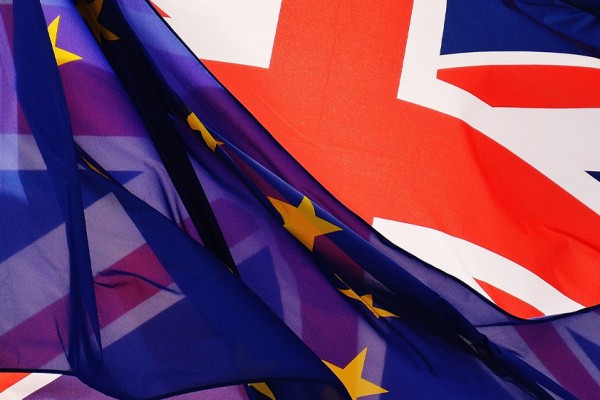This update supersedes our update from November 2019. Brexit occurred on 31 January 2020, when the United Kingdom left the EU and entered a transitional phase that will end on 31 December 2020. During this transition period, EU law continues to govern.

What will happen during and after the Brexit transition period?
From 1 January 2021, after the transition period ends, there will be some changes that are in line with what was anticipated before Brexit.
In summary, owners of already registered or granted European IP rights, or active proceedings, will generally automatically retain those rights in the UK. Therefore, if you have a pending European trade mark, design, or plant variety right, and you want that right to extend into the UK, you should move as quickly as possible to get that right registered or granted before 31 December 2020.
If you still have European Union Trade Mark (EUTM), EU registered community designs, or plant variety right applications pending on 1 January 2021, there will still be some options available for such rights to extend to the UK. We discuss the various rights and options below.
Patents
The good news is that Brexit will not affect your European Patent Convention application, or granted EP patent.
This is because the European Patent Convention is separate to the European Union. So, even though Britain has left the EU, it has not ’left’ the European Patent Convention. You will be able to continue to file European patent applications as normal.
Plant variety rights
If you have a granted Community Plant Variety Right (CPVR) this will become a separate UK Plant Breeders Right (UKPBR) without you needing to do anything. We understand that when you receive your new, separate UKPBR, your existing CPVR will cease its effect in the UK.
However, if your CPVR is still an application, or is granted, within the two months before the end of the transition period, then you will need to actively apply for a UKPBR. If you do this even earlier, within six months from the end of the transition period, then you can rely on the Distinctiveness, Uniformity, and Stability (DUS) testing already completed, and novelty will be assessed as of the European filing date. Early action is therefore likely to be advisable for this IP right.
Registered designs
European registered community designs (RCDs) that have already been registered will be in force throughout the European Union until the end of the transition period. On 1 January 2021, owners or holders of an RCD will receive a new UK registered design, and the RCD will cease its effect in the UK and be replaced by the new and separate UK registered design. The new UK registered design will be automatically generated at no cost and will provide equivalent rights to the RCD.
The new UK design registration will be treated as if it had been applied for and registered under UK law.
If you are an RCD owner and do not want coverage in the UK you can opt out of the automatic UK registrations.
Owners of pending RCD applications that have not yet been registered before 1 January 2021 can apply for an equivalent UK Registered Design within nine months. This new UK registered design will retain the RCD’s filing date. However, the usual UK official and agent filing fees will apply in this case, although we are hopeful that there may be some discounting available.
EUTM registrations
All European registered community trade marks (EUTMs) registered by 31 December 2020 will have an equivalent UK trade mark registration created unless an owner of an EUTM wants to opt out of this.
The UK registrations created following Brexit will be the same as if they were originally registered as a UK registration, including the filing/priority dates remaining the same. There will be no cost involved in the creation of these new automatic UK registrations.
The renewal dates for the new UK registrations will be the same as for the original EUTM registration.
EUTM applications
EUTM applications still pending on 1 January 2021 will not automatically be given a corresponding UK application. Instead, the owner of the application will need to apply for a corresponding UK application within nine months from 1 January 2021. The new UK applications will retain the original EUTM filing date and must cover the same mark and the same or fewer goods/services as covered in the EUTM.
Trade mark use
If a trade mark is used in the EU prior to 1 January 2021, this will constitute use of the mark in terms of the UK registration. All UK registrations converted from an EUTM will have a new five-year grace period before they become vulnerable to cancellation for non-use in the UK. It is not yet certain whether UK-only use of an EUTM before 1 January 2021 will qualify as use in the EU for the purposes of proving use of an EUTM registration after that date. Until guidance is issued on this point, EUTM owners should consider whether they can use their mark in the EU earlier than otherwise planned.
Litigation
Since the UK officially left the UK, the Withdrawal Agreement (“Agreement”) now applies. In particular, EU laws will continue to apply to the UK during and until the end of the transition period, i.e. until 31 December 2020 unless “otherwise provided”:
Unless otherwise provided in this Agreement, Union law shall be applicable to and in the United Kingdom during the transition period.
This means that the UK courts will continue to observe EU laws for ongoing civil or commercial proceedings. UK courts will continue to apply EU law and regulations, and interpret them in accordance with CJEU precedents. In other words, very little should change until the end of the transition period, “unless otherwise provided in the agreement”.
The holder of IP design and/or trade mark rights registered or granted before the end of the transition period will become the holder of a comparable registered and enforceable IP right in the UK without re-examination. However, it is still possible for that UK right to be declared invalid or revoked in the EU through judicial action that was ongoing on the last day of the transition period.
However, under Article 54(3) of the Agreement, the UK is not obliged to consider the grounds for invalidity or revocation that are only applicable in the EU.
[…] the United Kingdom shall not be obliged to declare invalid or to revoke the corresponding right in the United Kingdom where the grounds for the invalidity or revocation of the European Union trade mark or registered Community design do not apply in the United Kingdom.
Further, under Article 54(5) of the Agreement, the UK trade mark cannot be revoked on the grounds that the originating EU trade mark was not put into genuine use in the UK before the end of the transition period.
the [UK] trade mark shall not be liable to revocation on the ground that the corresponding European Union trade mark had not been put into genuine use in the territory of the United Kingdom before the end of the transition period.
This again provides some certainty to IP rights holders, who may be concerned about a potential revocation or invalidity proceeding against their newly-created comparable UK right. In essence, the rights holders have an opportunity to put their rights into use in the UK before the end of the transition period and are relatively guarded against invalidity or revocation actions until then.
In terms of enforceability of judgments: UK civil or commercial proceedings commenced before the transition period (and judgments obtained pursuant to those proceedings) are still enforceable in the EU. After the transition period, enforceability of a UK judgment is most likely to depend on the national laws of each country, which may be more difficult.
Regarding patents, the Unitary Patent and Unified Patent Court system is still yet to come into force in any case. However, UK government has now confirmed that the UK will not participate in this system.
Lastly, for completeness, arbitration with a seat in London remains unaffected by Brexit, because arbitration is regulated by the 1958 New York Convention (rather than EU law). Therefore, arbitration clauses and awards continue to be enforceable under the same conditions as currently.
How can we help?
For regular updates, simply subscribe to our monthly newsletter.
To speak with one of our specialists, please contact us today.
